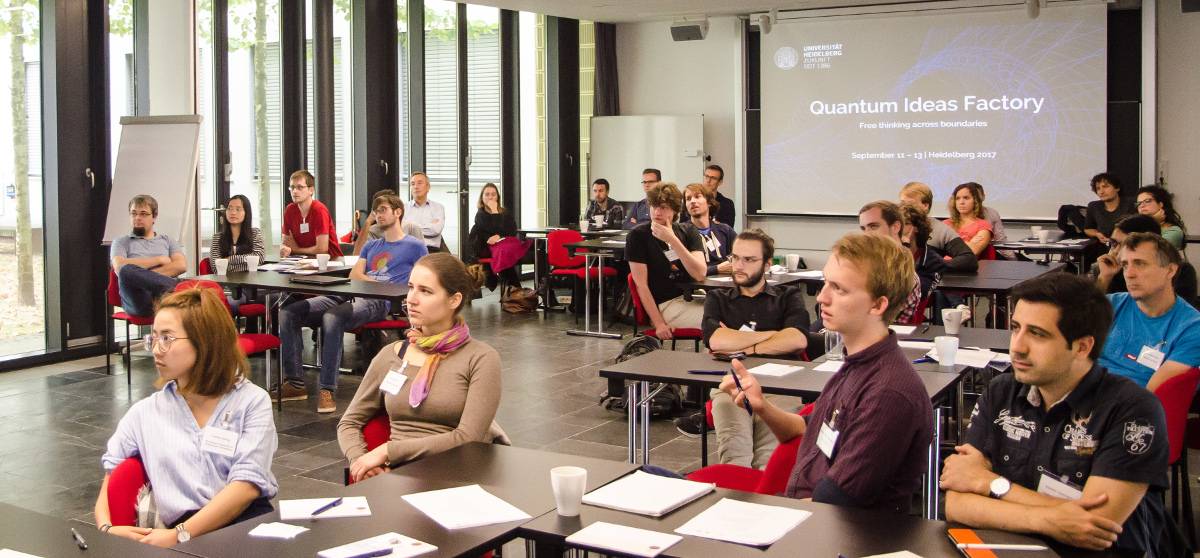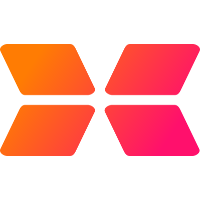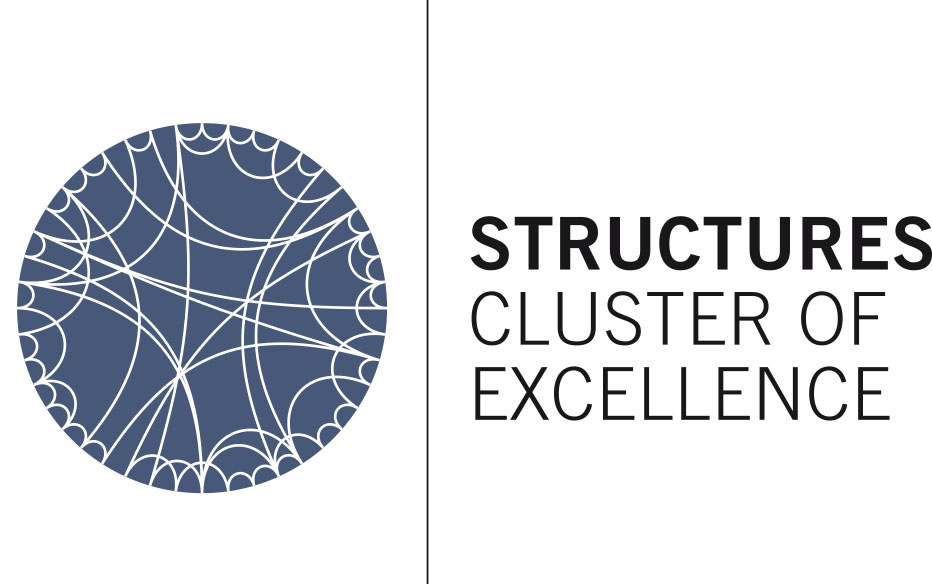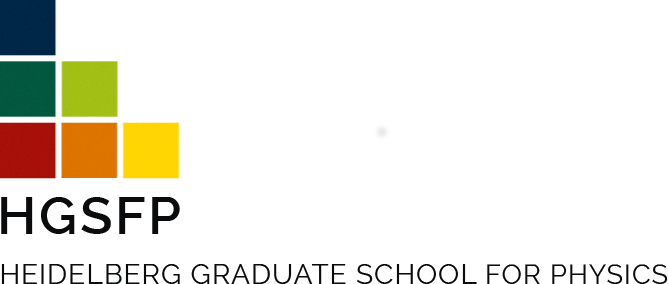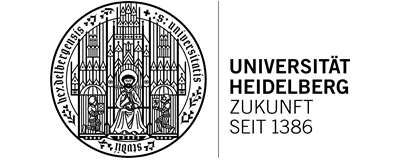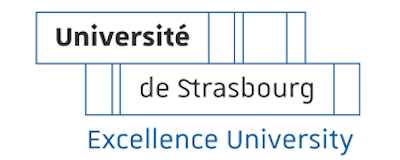BOOT CAMP
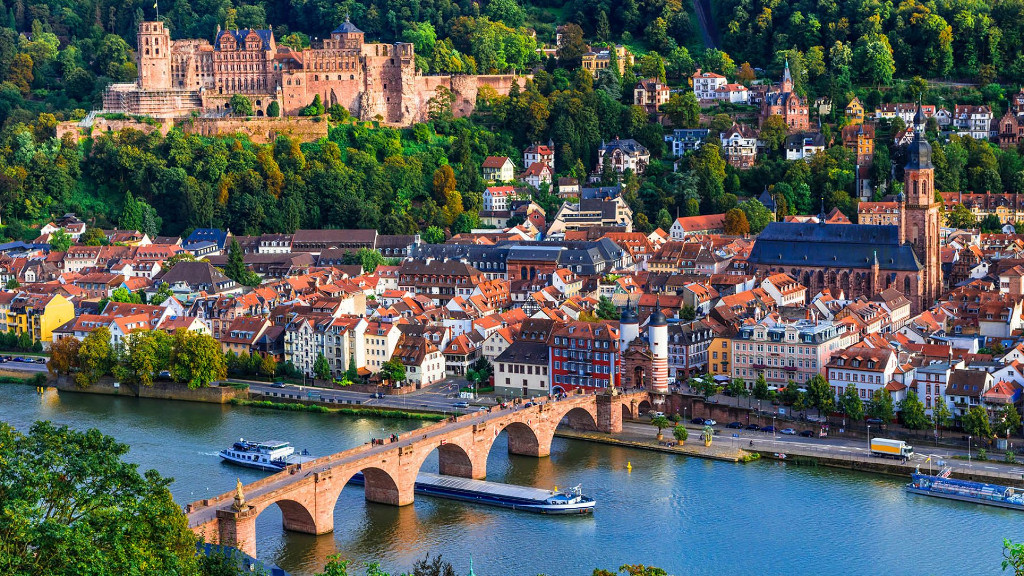
The EFEQT Quantum Ideas Factory will provide a transformational learning experience at the interface between rigorous academic research and free interdisciplinary exploration. 25 students and young researchers will take part in a scientific hackathon, which will help them to develop practical skills and visionary mindset in key areas of quantum science and technologies. The best participants will receive a fast-track access to pursue their PhD studies or postdoctoral careers at EFEQT partner universities.
During a three-day stay in Heidelberg Germany, you will will work in a small group to transform raw research ideas into well-rounded concepts for research projects or innovative solutions to key challenges in quantum science and technology. Each challenge is proposed by EFEQT academic and industry partners but will be shaped by the team members themselves.
What it is about
Inspiring young scientists and students to think beyond borders and innovate to address globally relevant challenges in quantum science and technology.
Action learning
You will be a part of a diverse four member team mentored by an experienced scientist to develop innovative solutions to outstanding problems.
Why you should attend
Spend three amazing days with like-minded and highly-motivated individuals from all over the world and develop your own problem solving skills.
SCHEDULE
Saturday 30 October, 2021
☆ 10:30 Arrival & city tour
☆ 12:45 Lunch
☆ 13:30 Challenge introductions
☆ 15:00 Start innovating
☆18:00 BBQ dinner
Sunday 31 October, 2021
☆ 09:30 Team innovation
☆ 12:45 Lunch
☆ 13:30 Team innovation
☆ 19:30 Pizza night
Monday 01 November, 2021
☆ 09:30 Prepare presentations
☆ 12:45 Lunch
☆ 13:30 Presentations & prize ceremony
☆ 15:00 Lab tours
CHALLENGE TOPICS
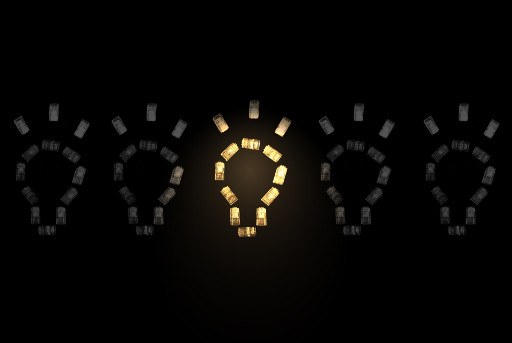
Challenge topics will be defined soon. Alternatively, if you have your own ideas, we encourage you to briefly describe it, and submit with your application. The description should outline your idea, its potential future impact, and possible implementation.
This years challenge topics will cover themes from quantum computing, quantum machine learning, quantum materials, quantum control, quantum software, quantum metrology, and more.
Confirmed coaches/themes:
 Abstract:
Abstract:Quantum computing hardware provides new approaches for the machine learning algorithms. Given the fundamentally different scheme of processing information in this hardware it is an exciting challenge to investigate the translation of these algorithms. In this project we propose to start out from the very pedagogical data reuploading schemes for binary classification and then dive deeper into the topic.
Coach: Fred Jendrzejewski (University of Heidelberg)
 Abstract:
Abstract:A laser beam propagating inside an atomic vapor gives rise to photon-photon interactions due to the presence of a Kerr nonlinearity. Within the paraxial approximation, the dynamics of the transverse electric field is given by a nonlinear wave equation which allows us to explore out-of-equilibrium photon fluids [1]. This makes it possible to study emergent quantum effects such as quasiparticle behavior [2], shockwaves... in a completely new medium. So far, all these experiments were performed in cm-long hot Rubidium vapor cells leading to moderate strengths of photon-photon interactions for which mean field theories give a good description of the system dynamics. A great leap forward would be to increase the photon-photon interactions by several orders of magnitude to eventually create many-body states of light.
In this project, we will explore strategies to increase photon-photon interactions for light propagating through (hot or cold) atomic vapors. In addition to fundamental science exploration, realizing strong interactions between individual photons would lead to important innovations in quantum technology e.g. for single photon switches, photonic quantum gates, etc.
Coach: Tom Bienaimé (ENS and University of Strasbourg)
[2] Q. Fontaine, T. Bienaimé, S. Pigeon, E. Giacobino, A. Bramati, Q. Glorieux, Observation of the Bogoliubov Dispersion in a Fluid of Light, Phys. Rev. Lett. 121, 183604 (2018)

Quantum mechanics is usually thought of as the domain of ultra-small. With development of superconducting electric circuits we found that currents in microscopic circuits are also obeying quantum rules. Nowadays, superconducting nonlinear circuits are used as quantum bits - or qubits for short - forming one of the most popular platforms for quantum computing.Yet to interface these qubits with the classical world, one has to carefully shape microwave electric signals used for their control, overcoming obstacles such as cross-talk and finite anharmonicity, and calibrating each instance of the macroscopic circuit. New optimal ways to do this are actively being explored by researchers.In this project we will explore how to turn-on a superconducting based quantum computer and to develop optimized high fidelity one- and two-qubit quantum logic gates. To this end, you will be using QUA language that describes quantum control pulses, used in many quantum computing labs, to run a qubit simulator which emulates several SC qubits connected to a real control system.
Coach: Gal Winer (Quantum Machines)
 Abstract: Applying quantum physics for computation and in technologies requires a thorough understanding of quantum systems and their interactions. Here, quantum simulation through actual experiments offers a hand-on approach. Quantum simulation aims at building quantum scale models out of well-controlled laboratory quantum systems to study, for example, quantum many-body physics. Designing these setups requires know-how on many experimental facets, which when all tuned together offer a unique control. These quantum simulators are the quantum equivalent to classical simulators such as crash test dummies. This challenge is all about exploring the quantum simulation opportunities of ultracold atoms and trapped ions. What can be simulated with the current systems at hand and how do you do it? What is the state-of-the-art, are the experimental limitations and how do we go beyond? What kinds of quantum simulator can you build?
Abstract: Applying quantum physics for computation and in technologies requires a thorough understanding of quantum systems and their interactions. Here, quantum simulation through actual experiments offers a hand-on approach. Quantum simulation aims at building quantum scale models out of well-controlled laboratory quantum systems to study, for example, quantum many-body physics. Designing these setups requires know-how on many experimental facets, which when all tuned together offer a unique control. These quantum simulators are the quantum equivalent to classical simulators such as crash test dummies. This challenge is all about exploring the quantum simulation opportunities of ultracold atoms and trapped ions. What can be simulated with the current systems at hand and how do you do it? What is the state-of-the-art, are the experimental limitations and how do we go beyond? What kinds of quantum simulator can you build?
Coach: Rianne S. Lous (University of Amsterdam, Hybrid quantum systems group www.hyqs.nl )
Literature
Emulating Solid-State Physics with a Hybrid System of Ultracold Ions and Atoms, Bissbort et al. PRL 111 (2003), https://journals.aps.org/prl/abstract/10.1103/PhysRevLett.111.080501
Section IV Experimental realizations of hybrid systems, from cold hybrid ion-atom systems, Tomza et al., Rev. Mod. Phys. 91 (2019) https://journals.aps.org/rmp/abstract/10.1103/RevModPhys.91.035001
To be announced:
Markus Garst (KIT, topic: digital quantum simulation)
Rianne Lous (University of Amsterdam, topic: Quantum simulation)
TRAVEL AND SCHOLARSHIPS
EFEQT students will benefit from full financial support for travel, lodging and participation costs. We can provide travel scholarships for a few external participants upon request.
No pandemic-related travel restrictions currently apply to travellers entering Germany from member states of the European Union or from Switzerland, Liechtenstein, Norway or Iceland. However EU-wide entry restrictions remain in force for other countries. For Germany, these restrictions are issued by the Federal Ministry of the Interior, Building and Community (BMI). Please check with the BMI prior to applying to find out what regulations apply specifically with regard to the country from which you plan to enter Germany.
APPLICATION
Master students, doctoral candidates, young researchers and postdocs with solid science background and an innovation mindset are welcome to apply! Although the focus of the boot camp is designed for quantum science and technology, we encourage interested applicants with any natural sciences background to apply. You should especially apply if you are considering future research topics for your Master or PhD in the field.
Successful participants will be selected based upon their CV and a short description of their motivation presenting their reason for applying, and notified briefly after the application deadline by email.
Applications closed
SPONSORS AND ORGANISING PARTNERS
To contact the organisers email marting@kip.uni-heidelberg.de

